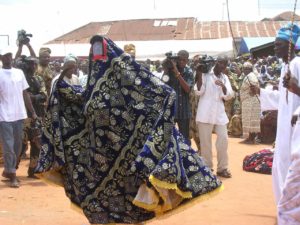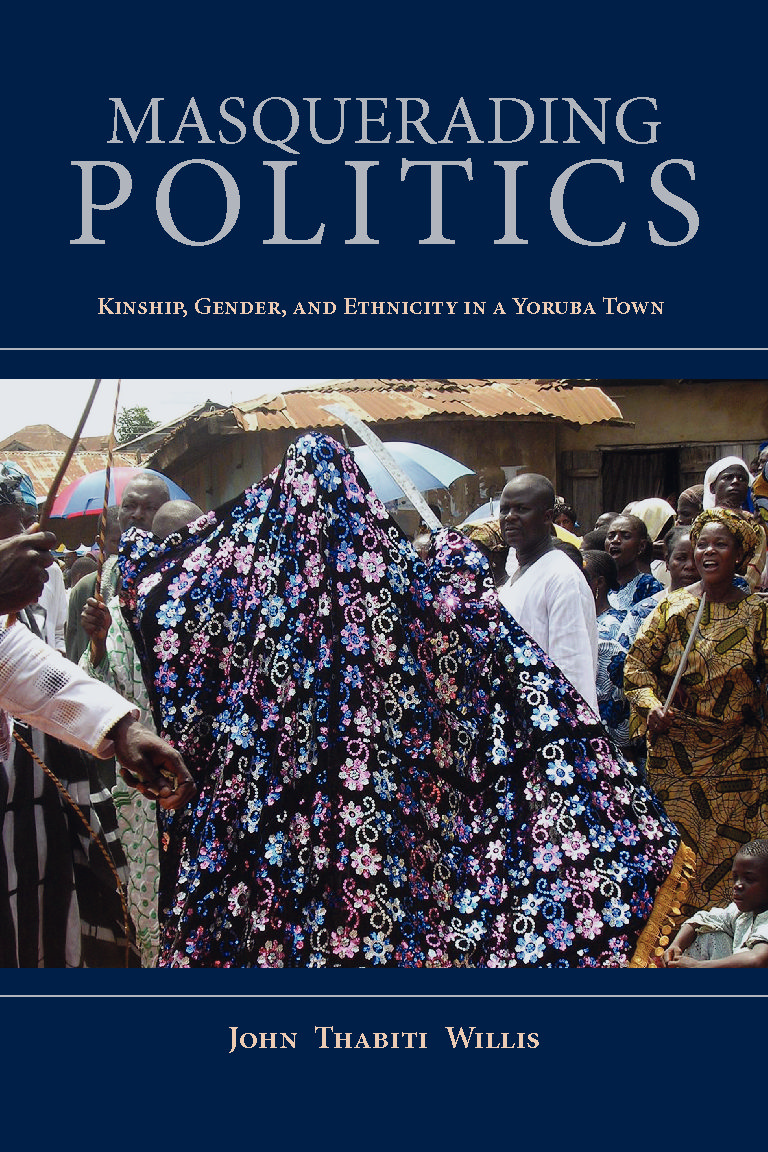Masquerading Politics: Kinship, Gender, and Ethnicity in a Yoruba Town
The masquerader featured on the book cover and in the image below depicts a prominent Yoruba spirit (Oya) while singing the praises of the husband and wives who collaborated at the end of the nineteenth century to advance their own individual and collective interests to mark a new era in Yoruba commercial, political, and social life. By sponsoring elaborate masquerade performances, patrons asserted their claims to power and authority in ways that are vividly captured this long-awaited study of Afro-Atlantic history and political culture.

Abstract
In West Africa, especially among Yoruba people, masquerades have the power to kill enemies, appoint kings, and grant fertility. John Thabiti Willis takes a close look at masquerade traditions in the Yoruba town of Otta, exploring transformations in performers, performances, and the institutional structures in which masquerade was used to reveal ongoing changes in notions of gender, kinship, and ethnic identity. As Willis focuses on performers and spectators, he reveals a history of masquerade that is rich and complex. His research offers a more nuanced understanding of performance practices in Africa and their role in forging alliances, consolidating state power, incorporating immigrants, executing criminals, and projecting individual and group power on both sides of the Afro-Atlantic world.

